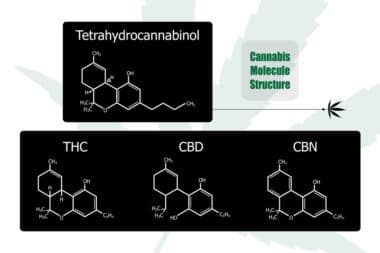Meg Hartley recollects her time at a cannabis dispensary and her exposure to the health benefits of cannabinoids and their interactions with the body’s “endocannabinoid” system. She claims that she learned that cannabinol (CBN) supported individuals with insomnia.
Moreover, she cites Steep Hill laboratory as claiming that around ~5 mg of CBN had the same effects of a mild sedative. She details her own “Do it yourself” method in order to replicate the results of the study at home, and the article’s integrity was quickly thrown into doubt.
The article utilized a method where cannabinoids were used together to enhance their impact, and that CBN is probably not the sole source of sedative-related benefits. She goes on to cite Dr. Ethan Russo, who explained that CBN does not treat actual insomnia, but underlying effects–like anxiety. He asks users to reflect on why they’re kept up, and do research on whether CBN is the best method, and whether it applies to their specific issues and sleep problems.
While CBN’s sedative properties are debatable, it, as stated before, definitely has some positive qualities relating to pain and anxiety relief that cannot be dismissed. Essentially, be skeptical, but don’t be afraid to check it out.
Been searching for a solution to help me sleep and CBN seems like the best answer! #HealthStatus
Follow HealthStatus
Tweet Now
Key Points:
- 1 There is new research showing that CBD does not actually sedate people. People are more likely tired because they smoked old buds.
- 2 To actually use it as a sleep aid, it is recommended that you combine it with other sedating products.
- 3 CBD can actually help you if your mind races at night and you have anxiety while trying to fall asleep.








Reply